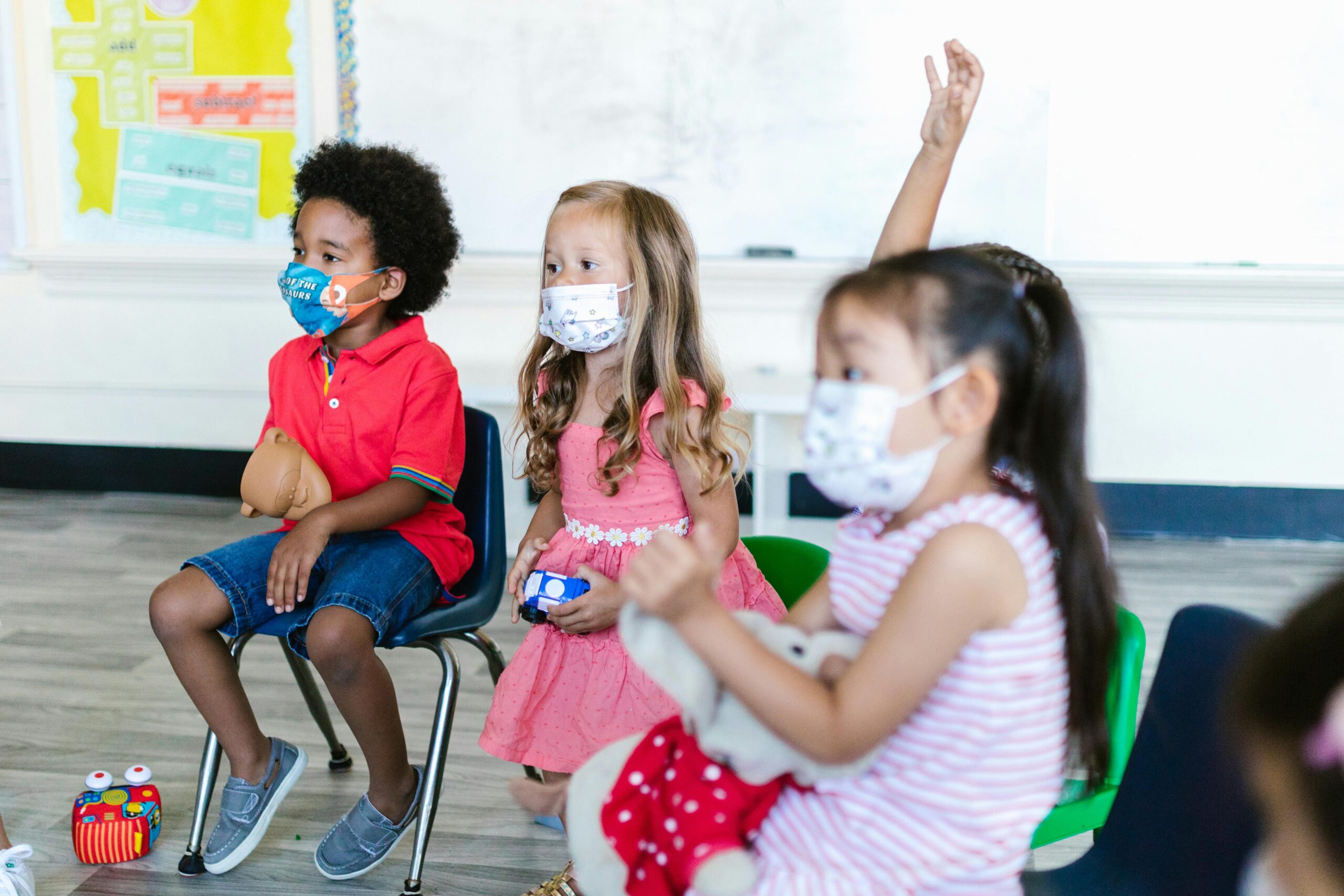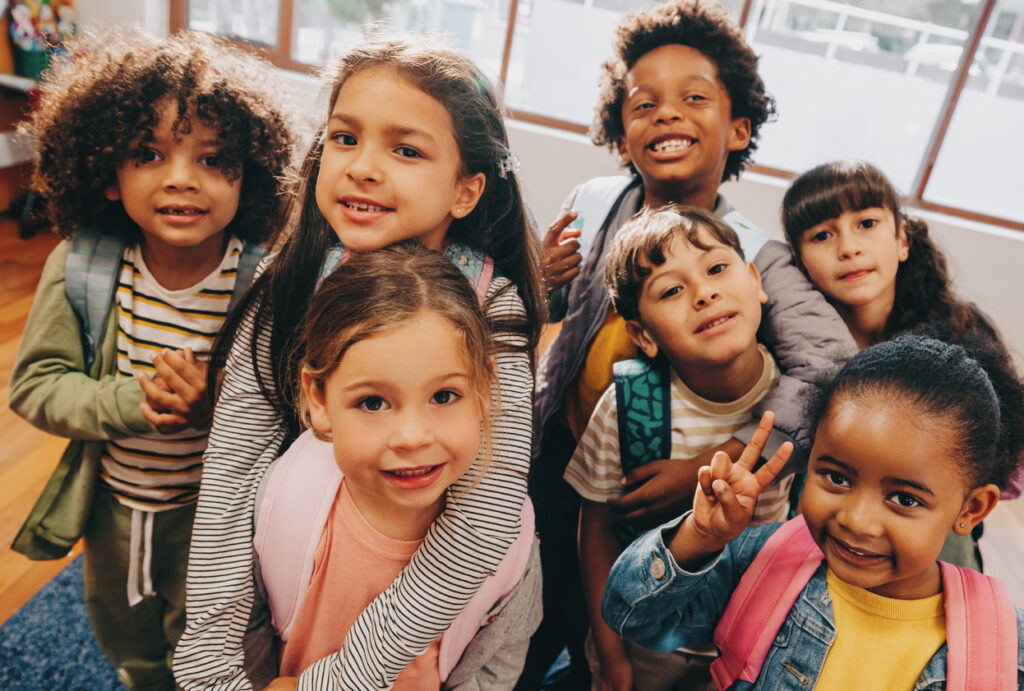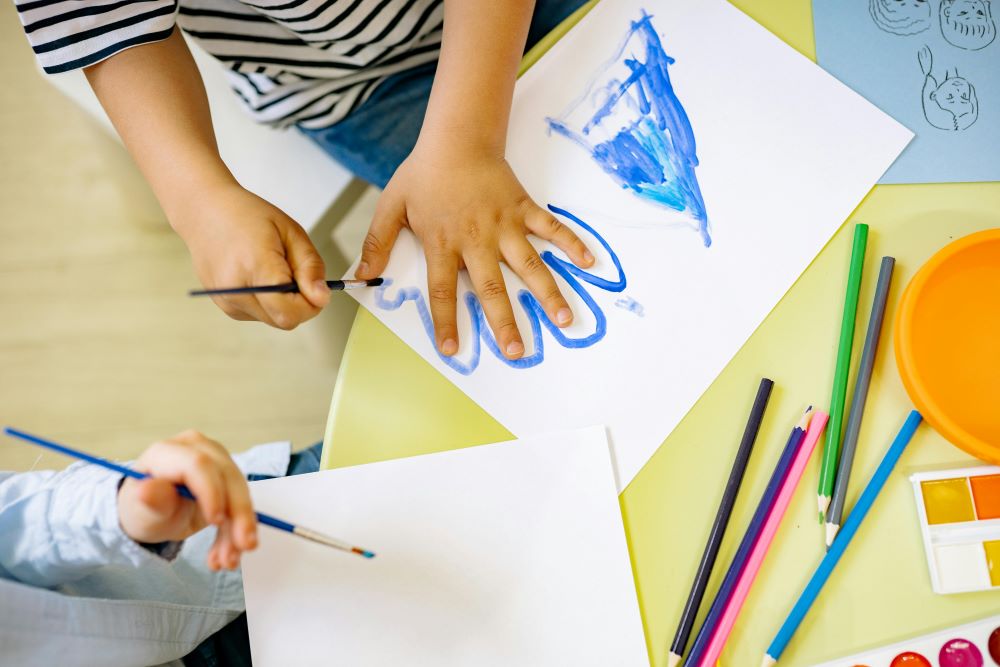COVID-19’s Impact on Preschoolers’ Development
Exploring the Impact of the COVID-19 Pandemic on Preschool Children’s Cognitive, Social-Emotional, and Executive Skills The COVID-19 pandemic…

Exploring the Impact of the COVID-19 Pandemic on Preschool Children’s Cognitive, Social-Emotional, and Executive Skills
The COVID-19 pandemic led to the closure of the vast majority of schools in the spring of 2020, with preschools being no exception. Learning for older children shifted to remote and virtual environments. However, preschool children, who naturally have less experience with technology and who learn primarily through play and social interactions, were often left with no options to continue their preschool education. In fact, according to research, “despite preschools being allowed to remain open, centers were closed for 88% of parents. Of the parents who indicated
that their preschool remained open, 59% reported that they chose not to send their child to school. Thus, approximately 92% of our pandemic-affected child sample was not attending any preschool program in the spring of 2020.”
Knowing this reality, and the limited research conducted about the impact of the pandemic on preschool children’s skills, Denver Preschool Program’s Senior Director of Evaluation and Impact Кристал Сиснерос, Ed.D., together with Vi-Nhuan Le (NORC at the University of Chicago, an objective, nonpartisan research organization), Diana Schaack (University of Colorado Denver), and Jolene Gregory (Denver Public Schools), explored the following questions through a longitudinal study design that collected data before and after the COVID-19 mandated preschool closures:
- How do the cognitive, social-emotional, and executive functioning outcomes of preschool children who were affected by the pandemic compare with those of prior cohorts of children who were not affected by the pandemic?
- Do these results differ by family income levels?
Their findings, titled “The COVID-19 Pandemic’s Disruptions to Preschool Children’s Cognitive, Social-Emotional, and Executive Functioning Skills” was recently published in Sage Journals
A Long-Term Look At the Impact of the Pandemic on Preschoolers
This study analyzed data collected as part of DPP’s annual evaluation process. The research compared outcomes from preschoolers enrolled during the pandemic (2019-2020) with the outcomes from the three cohorts of DPP children enrolled in preschool in the years immediately prior to COVID-19 (i.e., during the 2016–17, 2017–18, and 2018–19 academic years).
Starting in 2017-2018, surveys to parents were administered to assess children’s social-emotional and executive functioning outcomes. For all years reviewed in the analysis, the researchers also reviewed standardized assessments that were administered directly to children to evaluate their cognitive skills at the beginning of their preschool and kindergarten years.
Interestingly, the findings in “The COVID-19 Pandemic’s Disruptions to Preschool Children’s Cognitive, Social-Emotional, and Executive Functioning Skills” found that there were “no lags in early literacy or receptive vocabulary but found evidence of learning lags in early math, where 61% of the pandemic-affected children scored below the mean score of the prepandemic children.”
The study found noteworthy disadvantages in behavioral concerns, social-emotional protective factors, inhibition, and working memory, compared to the prepandemic cohorts, which showed advantages ranging from 13 to 18 percentage points in these areas. Behavioral concerns had the most statistically significant lags as both children in lower- and higher-income households demonstrated a 20 percentage point disadvantage when compared with their prepandemic peers.
The findings also showed the learning loss for preschool children related to the pandemic affected the social-emotional and executive functioning skills of children from lower- and higher-income groups differently, although the results were not always statistically significant.
According to the paper:
- “Pandemic-affected children from lower-income households showed a moderately large, albeit not statistically significant, disadvantage in their working memory, with a 16 percentage point disadvantage relative to their prepandemic peers from lower-income households.”
- “Children from higher-income families showed significantly greater lag on inhibition than children from lower-income families.”
“The COVID-19 Pandemic’s Disruptions to Preschool Children’s Cognitive, Social-Emotional, and Executive Functioning Skills” was one of the first studies to analyze developmental delays in kindergarten readiness skills for preschool children as a result of the pandemic.
DPP has conducted ongoing research about the impact of high-quality preschool on children’s success in kindergarten and beyond through more than a decade of research. Learn more about our findings on our Impact page.



